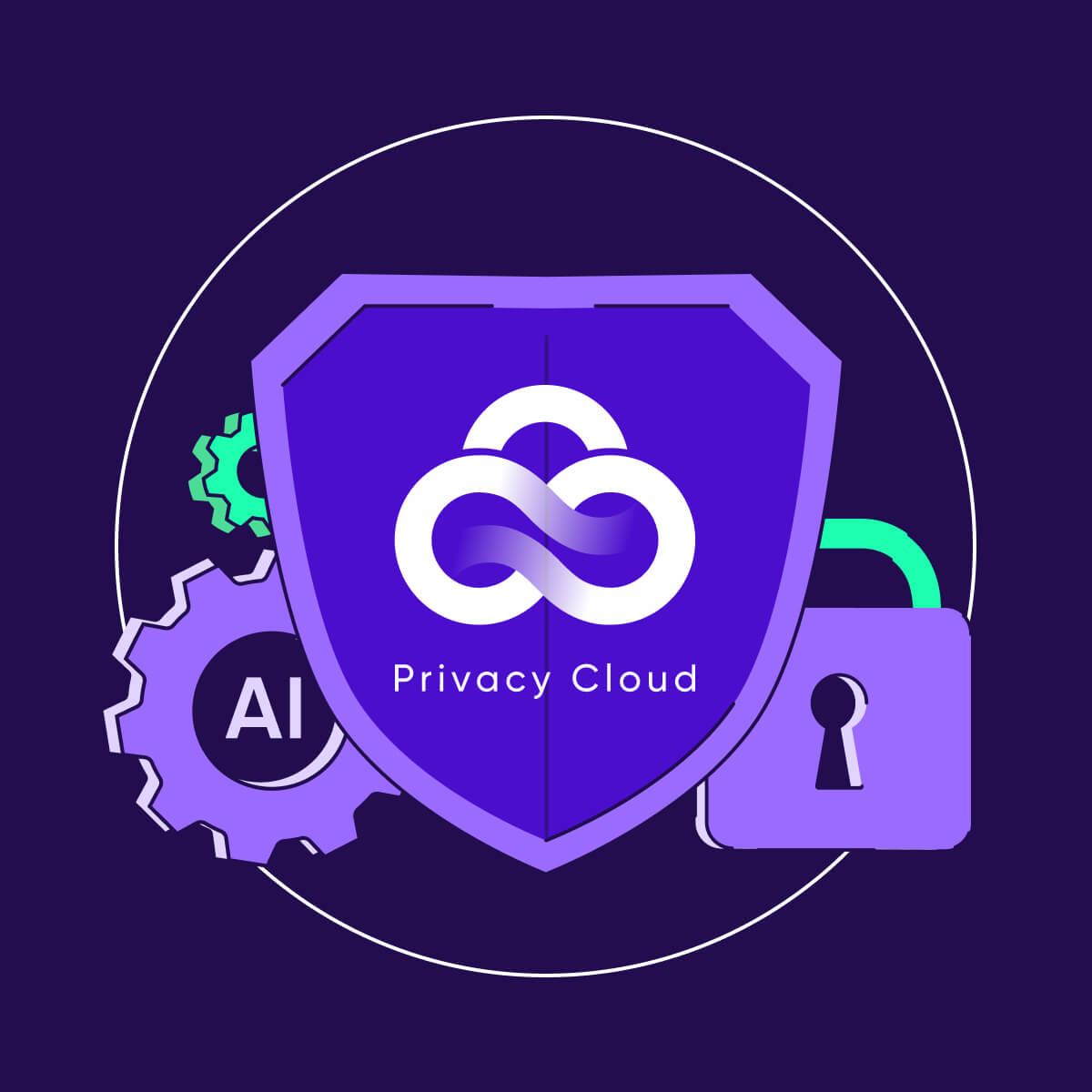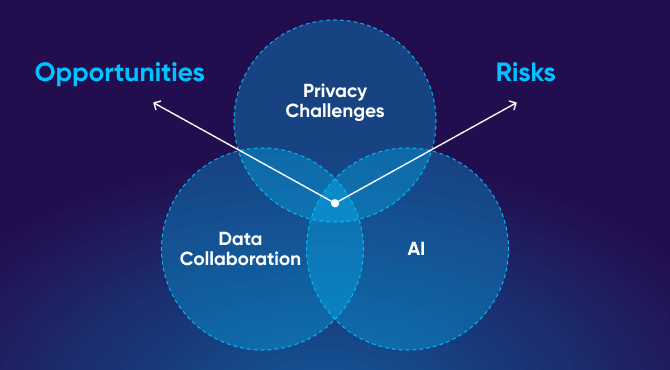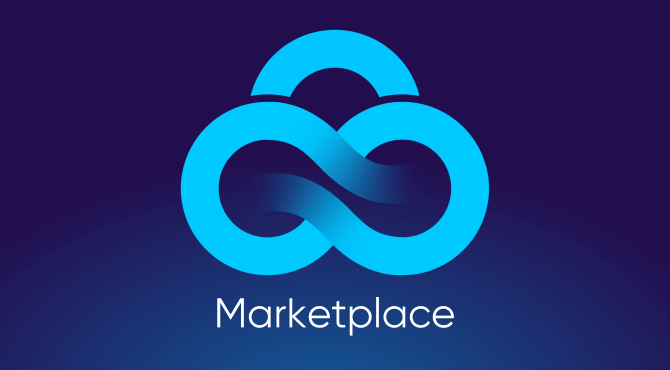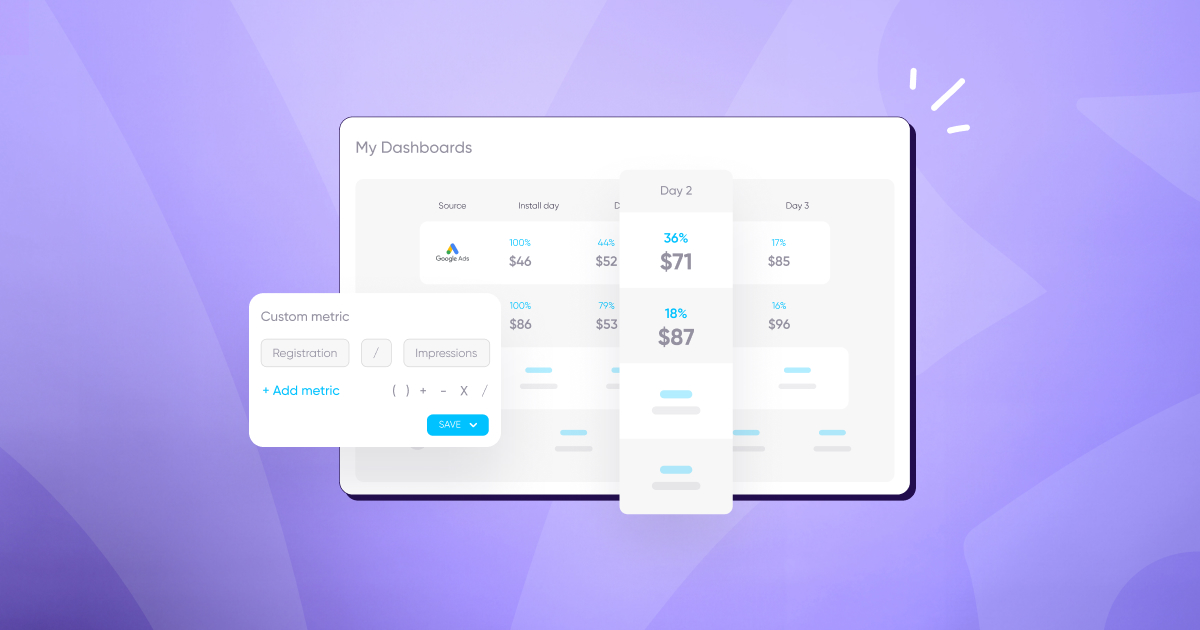
The AI / data privacy paradox – announcing the Privacy Cloud Marketplace

Solving the The AI / data privacy paradox, the future of private data collaboration
In the rapidly evolving landscape of technology, revolutionary innovations emerge approximately every 10-15 years, fundamentally reshaping our world. I have no doubt that Artificial Intelligence (AI) stands as the next groundbreaking opportunity, with the potential for profound and rapid global impact that surpasses even that of the iPhone’s introduction in 2007.
In my role as co-founder and CEO of AppsFlyer, I’ve been given a unique opportunity to steer our ship through the ever-changing waters of the mobile and digital landscape for over a decade. The creation of mobile smartphones was our genesis moment at AppsFlyer, a guiding light for app developers navigating the uncharted mobile and digital ecosystems. Through every twist and turn, we’ve had a hand in shaping the course of the mobile tidal wave.
Embracing AI’s transformative potential becomes urgent, as failure to do so could pose an existential risk to most organizations. However, AI’s reliance on extensive datasets runs counter to the foundational principles of data protection and minimization, which are not only integral to preserving consumers’ data, but also aligned with the core principles of privacy regulations and major platform guidelines.

Let’s explore the transformative changes, risks and opportunities AI and data privacy create, and how AppsFlyer intends to empower its thousands of customers to quickly leverage the latest technologies and AI services, while maintaining compliance with evolving data protection regulations and platform guidelines.
Data privacy: Regulation and platform changes
Most companies heavily depend on first-party customer data, which is growing in volume, complexity and accessibility. Effectively collecting, organizing and analyzing this data is crucial for improving products, enhancing customer experiences, and thriving in today’s competitive landscape. Moreover, while collaboration with service providers is essential, it becomes more complex and creates additional risks, as most of these partnerships require sharing first-party customer data.
In recent years, the digital ecosystem has faced substantial data privacy changes and challenges. The evolution of privacy regulations like GDPR and CCPA, updated guidelines from major platforms like Apple and Google and heightened scrutiny over data usage, have led to a significant overhaul of the foundational building blocks of the internet, including cookies, identifiers, and URLs. These transformations profoundly impact how companies manage, engage, collaborate, collect and analyze their data.
The stakes are high, as privacy regulations tighten and shape the future of the internet, the ability of companies to quickly adopt and leverage new technologies like AI, all while staying compliant and secure, may well determine the thin line between success and extinction.
AI: More than a buzzword
Imagine a magical AI service that continuously monitors your entire dataset, delivering real-time, crucial insights and predictions that might otherwise remain hidden. These insights, which would typically require weeks of work by teams of data analysts to uncover, can help prevent significant losses and missed opportunities.
AI’s appetite for vast amounts of data compels companies to share customer data with a growing number of partners and service providers. This practice conflicts with the fundamental privacy principle of data-minimization. This raises important questions, such as what constitutes the ‘maximum’ amount of consumer historical data necessary to meet regulations like GDPR and CPRA? Is it hours, weeks, months, or even years of consumer data history? How can companies navigate this challenge while maintaining compliance?
Should companies be forced to make a choice between the risk of missing out on the groundbreaking opportunities AI offers with the risk of potentially compromising consumer trust, losing their first-party data advantage, or violating privacy regulations?
Aside from users’ privacy and regulation, customer data stands as one of the most invaluable assets for the majority of companies. Its exposure brings forth significant business and competition risks. This challenge begs the question: How can companies ensure that the data they entrust to third-party and AI services remains impervious to leaks and misuse, safeguarding it from potential exploitation that could work to their detriment, whether through direct or indirect means? Can you imagine a competitor targeting your most valuable customers, and taking over your business leveraging your own data? Finally, can companies get the benefit of data sharing without actually sharing data?
Striking a delicate balance becomes pivotal – harnessing AI’s groundbreaking potential while preserving consumer trust, maintaining data advantage, and complying with evolving privacy regulations.
Given the existential risks presented by this paradox, is there a viable path to strike a balance or foster new technologies that harmonize the principles of data minimization and AI’s appetite for data? Furthermore, how can companies efficiently test and integrate these new AI innovations without going through long and complex compliance processes?
The AppsFlyer Privacy Cloud and Data Clean Room
In 2021, we introduced the AppsFlyer Privacy Cloud and Data Clean Room, showcasing that data collaboration and user privacy can harmoniously coexist. The Privacy Cloud acts as a trusted open platform, encouraging collaboration and innovation throughout the entire ecosystem, including platforms, brands, publishers, ad networks, technology partners, analytics companies and agencies.
It enables companies to collaborate securely and effortlessly, by bringing their data together without the need to share individual user-level details. This not only facilitates crucial decision-making insights but also enables the harnessing of cutting-edge technologies like AI advancements.
The next phase of the Privacy Cloud: Marketplace
Today, we’re excited to open the AppsFlyer Privacy Cloud to third-party services and plugins, a move aimed at providing more comprehensive solutions to our customers, partners and the broader ecosystem. Through our Privacy Cloud’s Data Clean Room, we are pioneering a future where businesses can seamlessly integrate advanced AI models and other third-party services, all while minimizing or eliminating the need for user data movement, copying, or sharing, ensuring utmost privacy and efficiency.
The Privacy Cloud Marketplace principle is to minimize data movement, which enables companies bringing the service or AI model to the data, instead of sending their data to the service.

This step enables our customers to easily and securely leverage the latest market innovations, while retaining comprehensive control to remain compliant with privacy regulations and platform guidelines.
This significant leap forward aligns with our vision of enabling better, safer digital experiences through privacy-centric ecosystem collaborations and innovations. And rest assured, this is just the beginning.
For service providers: We have witnessed numerous transformative innovations emerging from a diverse range of companies. However, data protection compliance often acts as a significant barrier to their rapid growth. Thousands of our customers already have their data stored, processed and organized within the AppsFlyer Cloud, and they are eager to leverage these services while adhering to data protection requirements. To apply for the newly forming AppsFlyer Privacy Cloud Marketplace, please contact us at marketplace@appsflyer.com.
To our customers: Over the past two decades, the evolution of cloud computing and the proliferation of various Software as a Service offerings have compelled companies to share their consumer data with hundreds of different entities and service providers. As this number continues to grow with the introduction of innovative AI services, we firmly believe that companies should have the capability to bring those SaaS services or AI models directly to their data, rather than transmitting their data to these services.
This approach not only facilitates compliance with existing and future data protection regulations, but also expedites time-to-market, streamlines the compliance and information-security processes associated with adopting new services, enables instant data mapping, and reduces data-related risks.
Are you interested in leveraging a third-party service but find it challenging to share your first-party data while adhering to data protection standards and global privacy regulations? Please reach out to us, we might be able to help.
We are on the cusp of a revolutionary transformation in enterprise software. Companies that are capable of effectively managing their data, streamlining its use, and swiftly implementing innovative services in a secure and compliant manner are poised to shape the future. We are determined to supercharge our customers with these innovations, and this is our mission with the Privacy Cloud Marketplace.





